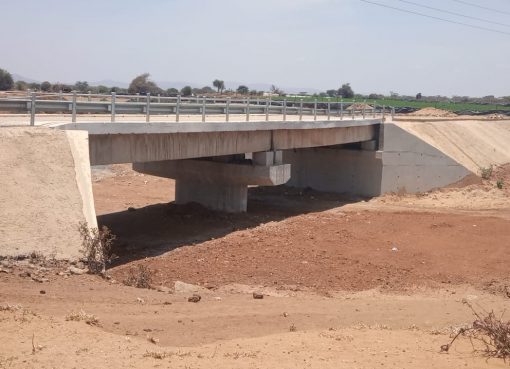Project Managers have called for collaboration between governments and industry, a move which will bridge skill gaps by aligning training programmes with market needs.
Project Management Institute (PMI) Sub-Saharan Africa Managing Director (MD) George Asamani said that Public-private Partnerships (PPP’s) can provide resources for skill development, particularly for small and medium-sized enterprises, ensuring that project management skills reach across all levels of the economy.
As the continent marks Africa Industrialisation Day, Asamani said that incorporating project management into technical and vocational education will also ensure that young Africans enter the workforce with essential skills.
“This can begin as early as secondary school, where students learn the basics of planning, teamwork, and goal-setting, extending through to university curricula in engineering, technology, and business,” said Asamani.
He explained that there are immense opportunities in the transformative potential of industrialisation in reshaping the continent’s economic landscape, generating employment, and raising standards of living for the approximately 1.5 billion inhabitants.
“As we look toward a future driven by the Fourth Industrial Revolution and the rise of automation, advanced manufacturing, digital transformation, and Artificial Intelligence, the question emerges: How do we best prepare Africa’s workforce for this new age?” posed Asamani.
He said that the answer lies in building a robust base of project management skills that are not just peripheral but central to successful industrialisation.
The MD said that each era of technological advancement, from the age of steam to the advent of digital, has been propelled not merely by inventions and resources but by skilled people capable of harnessing and managing those resources effectively adding that each leap forward required new knowledge, execution, and the ability to navigate complex projects clearly.
“Industrialisation is not just about factories, machinery, or technology; it is about managing these elements cohesively to create value. And this is where project management skills play a pivotal role. Whether establishing new production facilities, transitioning to cleaner energy sources, integrating digital technologies, or flying back to the moon, the success of these efforts hinges on structured, disciplined approaches to planning, executing, and monitoring complex projects. Project management is, in essence, the backbone of industrial progress,” he explained.
He disclosed that in China, megaprojects transition from concept to completion with remarkable efficiency, driven by a deep pool of project management expertise. In Africa, the journey for similar projects often takes longer and demands more resources, highlighting the critical impact of a skills gap in project management. This skills gap underscores a crucial barrier to Africa’s industrial progress; without a robust base of project management expertise, the continent faces slower project cycles and reduced global competitiveness.
Asamani said that the Programme for Infrastructure Development in Africa (PIDA), in its 10-Year Implementation Report, highlights the consequences of inadequate project preparation—namely, lower project quality and missed financing opportunities that stalled implementation.
He highlighted that addressing these gaps through skilled project management can ensure that projects are better prepared from the outset, enabling more efficient, impactful, and well-funded development initiatives.
“It is not only project management that shapes a nation’s industrial capabilities, but it remains the linchpin, orchestrating diverse skills into cohesive, efficient workflows that drive projects to completion. This is evident in PMI’s Pulse of the Profession report, which shows that high-performing organisations with more certified project managers complete more projects on time, within scope, and budget compared to their peers. Overcoming the triple constraints enhances business performance and strengthens industrial growth,” Asamani.
According to the MD, for Africa, the stakes are high since industrial projects involve vast investments and interdependent systems where delays, inefficiencies, or mismanagement can mean substantial losses and setbacks. Project management fosters a culture of accountability, efficiency, and excellence—values that are vital to driving Africa’s industrial agenda forward.
“To capitalise on this opportunity, governments and organisations have a key role in fostering project management skills at scale. For industrialisation to succeed, policy must prioritise structured project management, particularly in government-led initiatives such as infrastructure and energy. By mandating certified project managers, governments can set a national standard for execution excellence,” he said.
Asamani said that both the public and private sectors should prioritise and subsidise project management training, particularly in regions where industrial projects are underway.
“For Africa to successfully industrialise, project management skills must be seen not as optional but as foundational. Africa’s industrial revolution must not be seen only as machinery or manufacturing but as people empowered to lead, manage, and sustain growth. By committing to this vision, we can chart a path for the continent to keep pace with global industrial advances while setting its own course toward sustainable development,” said Asamani.
By Joseph Ng’ang’a




